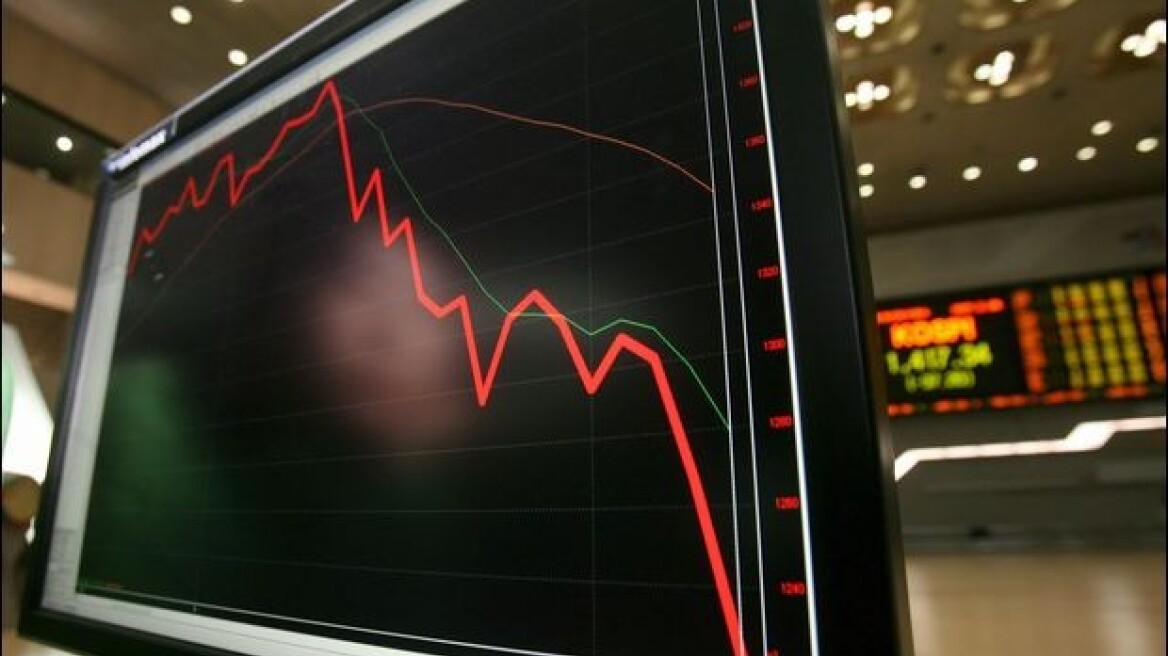
Did the Athens Exchange go back on a negative course?
Did the Athens Exchange go back on a negative course?
The current situation shows that the brutal downgrade of the Greek economy by Moody’s is affecting the banks, so it seems very difficult for the Athens Exchange to stop its downward course.

UPD:
The current situation shows that the brutal downgrade of the Greek
economy by Moody’s is affecting the banks, so it seems very difficult for
the Athens Exchange to stop its downward course.
Despite the fact that the market – ostensibly – seemed to hold at 1.500-1.550 units for days, it was essentially looking for some kind of relief that was found in the opportunity of the report by Moody's.
Yesterday, the few «ridges» (OPAP - OTE) held off a further drop and this is why the General Index stood at 1.525,50 points, recording a drop of 3,81%.
It is obvious that if the firm wanted to make the announcement during a normal meeting, the drop would have exceeded 6-7%. So, this time the shock was controlled.
As we will see, the AE entered a downward course on February 23, when the National-Alpha deal was permanently scrapped, and since then any reaction has been on a small scale.
As traders say, from a technical standpoint, approaching 1.457 units does not seem unlikely. If the market were to fall to that level, it would not be impossible for it to reach new low levels after those of January (1.351 points).
Despite the fact that the market – ostensibly – seemed to hold at 1.500-1.550 units for days, it was essentially looking for some kind of relief that was found in the opportunity of the report by Moody's.
Yesterday, the few «ridges» (OPAP - OTE) held off a further drop and this is why the General Index stood at 1.525,50 points, recording a drop of 3,81%.
It is obvious that if the firm wanted to make the announcement during a normal meeting, the drop would have exceeded 6-7%. So, this time the shock was controlled.
As we will see, the AE entered a downward course on February 23, when the National-Alpha deal was permanently scrapped, and since then any reaction has been on a small scale.
As traders say, from a technical standpoint, approaching 1.457 units does not seem unlikely. If the market were to fall to that level, it would not be impossible for it to reach new low levels after those of January (1.351 points).
Whether all this will come true remains to be seen from the reaction to non-bank shares, like yesterday with OPAP, OTE or Motor Oil. However, it is significant that the National Bank share completed nine negative closings in ten sessions.
Moreover, the market expects possible downgrades of bank bonds, although many banks have rushed to swap covered bonds rated by Moody's, since they have known about its movements for a month and a half now.
On the other hand Fitch, another investment agency, is threatening to downgrade the Cypriot banks, a development which will also burden the climate in the Greek market.
The report was not a shock
Of course, the report by Moody's was not a shock, as all the reasons it refers to are genuine: the ambitious objectives of the memorandum program, the decreased revenues and the risk of a restructuring of the Greek debt.
It’s just that the Greek government did not expect such an extreme reaction from the firm, as they were in the middle of consultations and according to sources, had known about the downgrade since last Wednesday. So everything was known but the government thought it would be given an extension at least until the EU summit.
Thus, the same mistake that was made in the previous period – when the AE had been going up for two months on the grounds that there would be a repurchase of bonds – is being repeated now. As it was proven subsequently, the market had been rising for two months because there was news (National-Alpha approach). When the deal was canceled, the countdown for the Greek market began. Since the highs of Friday, February 18th, the index has lost 6,8%
Sort-outs
An unknown «aspect» that led to yesterday's drop was also the sort-outs in bank shares. Last week the borrowed shares – only in two sessions – exceeded 10 million shares for each title in the bank shares of National - Alpha - Eurobank. And the borrowing is not only about the shares from the Hellenic Exchange Group but also from the Over The Counter entries.
Meanwhile though, the volume of open selling was not large, so one cannot reach any firm conclusions about the attitudes of foreign investors.
Moreover, the market expects possible downgrades of bank bonds, although many banks have rushed to swap covered bonds rated by Moody's, since they have known about its movements for a month and a half now.
On the other hand Fitch, another investment agency, is threatening to downgrade the Cypriot banks, a development which will also burden the climate in the Greek market.
The report was not a shock
Of course, the report by Moody's was not a shock, as all the reasons it refers to are genuine: the ambitious objectives of the memorandum program, the decreased revenues and the risk of a restructuring of the Greek debt.
It’s just that the Greek government did not expect such an extreme reaction from the firm, as they were in the middle of consultations and according to sources, had known about the downgrade since last Wednesday. So everything was known but the government thought it would be given an extension at least until the EU summit.
Thus, the same mistake that was made in the previous period – when the AE had been going up for two months on the grounds that there would be a repurchase of bonds – is being repeated now. As it was proven subsequently, the market had been rising for two months because there was news (National-Alpha approach). When the deal was canceled, the countdown for the Greek market began. Since the highs of Friday, February 18th, the index has lost 6,8%
Sort-outs
An unknown «aspect» that led to yesterday's drop was also the sort-outs in bank shares. Last week the borrowed shares – only in two sessions – exceeded 10 million shares for each title in the bank shares of National - Alpha - Eurobank. And the borrowing is not only about the shares from the Hellenic Exchange Group but also from the Over The Counter entries.
Meanwhile though, the volume of open selling was not large, so one cannot reach any firm conclusions about the attitudes of foreign investors.
UPD:
Ακολουθήστε το protothema.gr στο Google News και μάθετε πρώτοι όλες τις ειδήσεις
Δείτε όλες τις τελευταίες Ειδήσεις από την Ελλάδα και τον Κόσμο, τη στιγμή που συμβαίνουν, στο Protothema.gr
Δείτε όλες τις τελευταίες Ειδήσεις από την Ελλάδα και τον Κόσμο, τη στιγμή που συμβαίνουν, στο Protothema.gr
ΡΟΗ ΕΙΔΗΣΕΩΝ
Ειδήσεις
Δημοφιλή
Σχολιασμένα






































